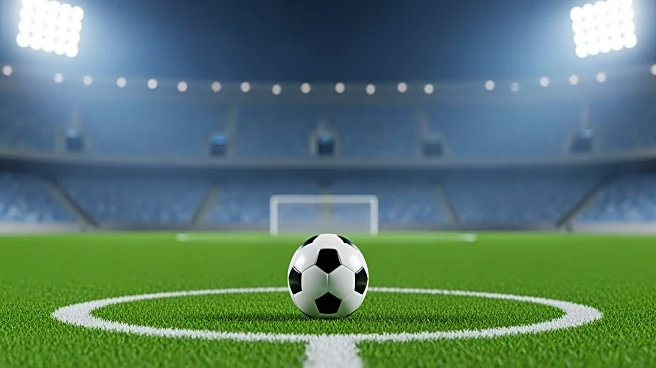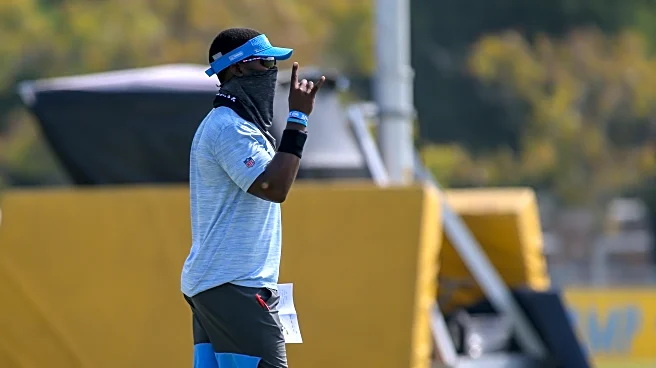What's Happening?
Max Dowman, a 15-year-old footballer, has made history by becoming the youngest player to participate in the Champions League. Dowman was introduced as a substitute during Arsenal's 3-0 victory over Slavia Prague, marking his debut in Europe's premier
club competition at just 15 years and 308 days old. This milestone follows his recent achievement as Arsenal's youngest-ever starter in a Carabao Cup match against Brighton. Arsenal manager Mikel Arteta praised Dowman's personality and courage, highlighting his ability to adapt and perform well despite his young age. Dowman's former coach, Temisan Williams, noted his exceptional ball-carrying skills and potential for a bright future in football.
Why It's Important?
Max Dowman's debut in the Champions League is significant as it highlights the potential for young talent to make an impact in high-level competitions. His participation at such a young age demonstrates the evolving nature of football, where age is becoming less of a barrier for entry into professional sports. This development could inspire other young athletes and encourage clubs to invest in nurturing young talent. For Arsenal, Dowman's emergence represents a promising addition to their squad, potentially boosting their performance in future competitions. The broader football community may see this as a shift towards valuing skill and potential over experience.
What's Next?
As Max Dowman continues to develop his skills, he is expected to gain more opportunities to play in major competitions. Arsenal may look to integrate him further into their first team, providing him with more exposure and experience. His progress will be closely monitored by fans and analysts, with expectations for him to eventually compete in the Premier League and possibly international tournaments like the World Cup. Dowman's journey could influence Arsenal's strategy in developing young players and impact their long-term planning.
Beyond the Headlines
Dowman's early success raises questions about the ethical considerations of young athletes participating in high-pressure environments. While his talent is undeniable, the physical and mental demands of professional sports at such a young age could have long-term implications. Clubs and governing bodies may need to consider policies that ensure the well-being of young players, balancing their development with their health and education. This situation also highlights the cultural shift in sports towards embracing youth and innovation.















